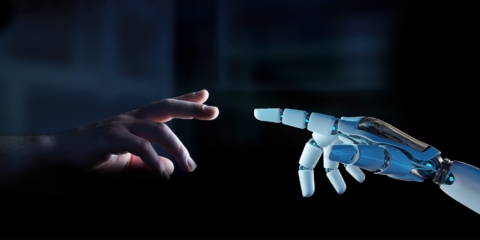Would you like to get notifications from Christian?
What happened? IBM has announced a new roadmap for quantum computing, which includes plans to deliver 4,000+ qubit systems by 2025. This is the first time that a single computer will be able to use this many qubits. It’s four times as many as the previous generation of quantum computers. Quantum computers have the potential to solve certain problems much faster than traditional computers. They can also be used for artificial intelligence and machine learning applications. IBM is well-positioned to capitalize on the growing demand for quantum computing power.
Why is this important? The high-performance computing systems will be built to work with IBM’s Quantum System Two, which it says will provide the infrastructure for connecting numerous quantum processors together. The prototype of the Quantum System Two is anticipated to be completed in 2023.
Quantum computers are able to solve certain problems much faster than traditional computers. They can also be used for artificial intelligence and machine learning applications. This will have a massive impact on all aspects of our society, as quantum computers will be able to revolutionize many industries, including healthcare. Quantum computers will probably help us to better understand biology and develop new drugs and treatments. They will also help us to develop more efficient energy sources, create new materials and improve transportation.
The ability of machine learning algorithms to operate on data at the speed of light will be aided by quantum computers, which will allow them to carry out many tasks simultaneously and take advantage of massively parallel processing in the same way that our brains do. I am of the opinion that quantum computers will assist humanity in resolving its most difficult problems, as well as allow us to contact and interact with the quantum field itself.
It remains to be seen how IBM’s quantum roadmap will unfold. The company is clearly committed to delivering on its promises, and it has the resources and expertise to make quantum computing a reality. Quantum computers will have a profound impact on our society, and IBM is leading the way in making them a reality.
Author: Christian Kromme
First Appeared On: Disruptive Inspiration Daily
Christian is a futurist and trendwatcher who speaks about the impact of exponential technologies like AI on organizations, people, and talents. Christian tailors his presentations to your audience’s specific industries and needs.




Embracing the advancements of technology and AI can enhance our humanity. We can focus on developing our unique talents and skills by automating mundane tasks and freeing up our time. As humans, we can adapt and learn, allowing us to evolve and stay relevant in a rapidly changing world constantly.


Organizations will need to be more fluid, dynamic, and adaptable: the ability to change and adjust in response to new situations and environments. We are on the cusp of a new era of organizations, ones that are more fluid and agile and which behave like swarms we see in nature.




In the future, 3D printing and generative design will allow for products to be designed in a more decentralized manner, and production will take place closer to the customer and fully on-demand. 3D printing technology will also allow for more customization and personalization of products.


The agricultural industry is ripe for disruption. Robotics, AI, and IoT are all technologies that have the potential to radically transform the way we grow food. In combination with vertical farming, these technologies could increase the efficiency and quality of agricultural products.

A human-centered society is one that puts people first and where technology is used to unite and empower people. It is a society that values biological life and dignity above all else. It is a society that recognizes the importance of human relationships and works to strengthen them. In a human-centered society, all members of the community are valued and treated with respect.


The future of healthcare is here. New technologies like AI, IoT, big data, and smart sensors make it possible to become the CEO of your own health. Imagine that your phone can listen to your voice and AI algorithms can detect small nuances in the tone of your voice that indicate specific diseases.
